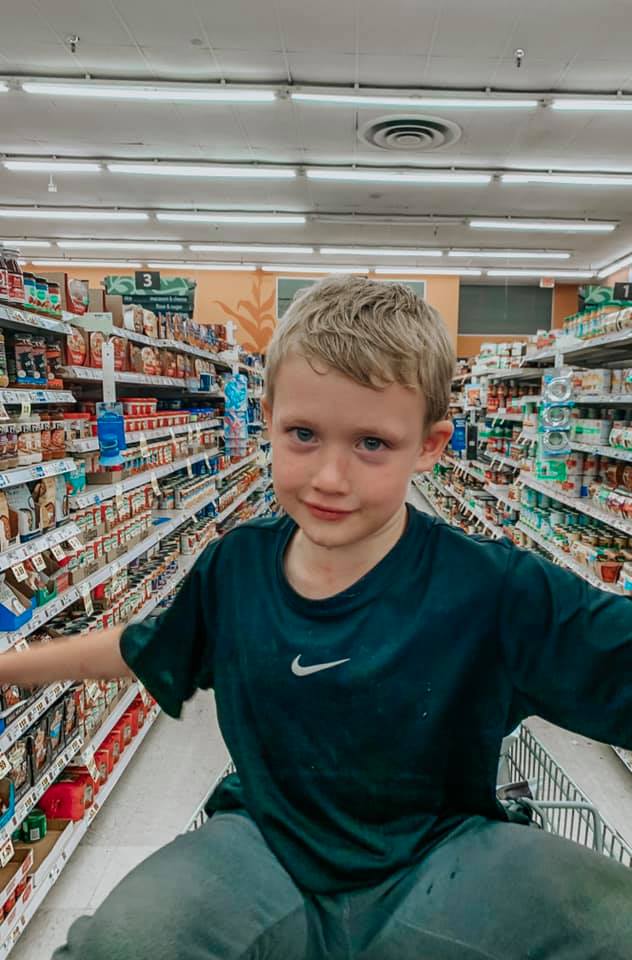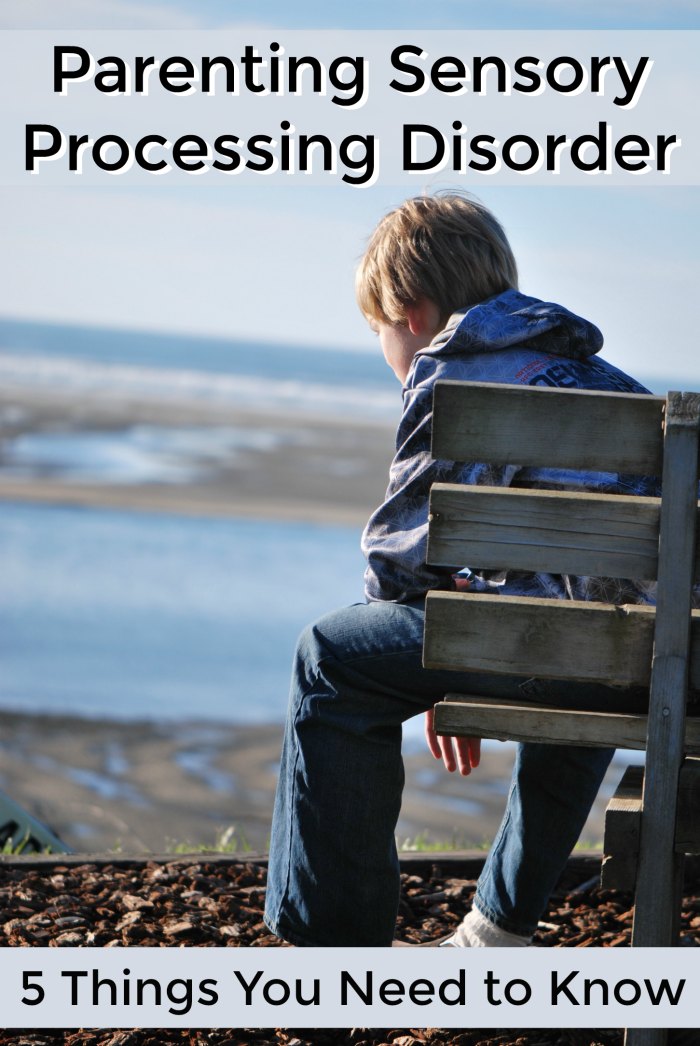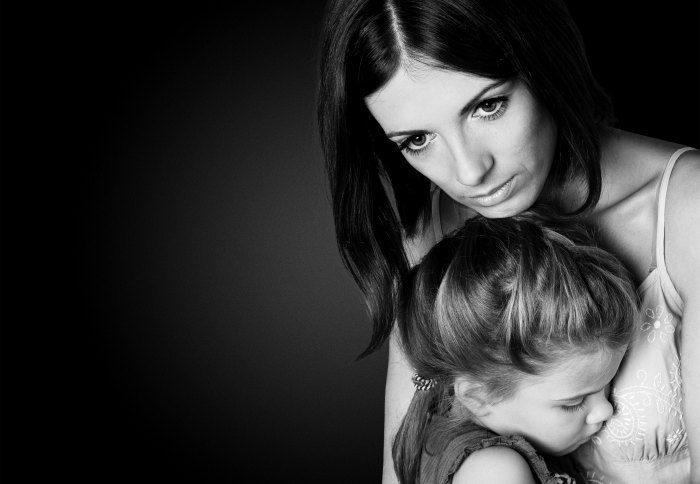5 Things You Need to Know About Parenting Sensory Processing Disorder
Parenting Sensory Processing Disorder is never easy.
If have a child with SPD, you often have to wrestle with other people’s perceptions and expectations.
Whether you’re parenting a child with SPD or know someone, you should know these five things!
Today on the Voices of Special Needs series, fellow mom Kayla Harris shares what she has learned from parenting her own child with Sensory Processing Disorder.
Be sure to learn more about Sensory Processing Disorder and my parenting tips on how to support your child with sensory challenges.

In the picture above….
Yesterday… that’d be aisle 2.
Yep that’s as far as we got.
That’s sweat, excessive slobber/drooling, and I’ll spare you the details of the screaming and crying that was happening three seconds before this was taken.
Major sensory overload for this dude.
That’s a halfway smile because he was just promised we were leaving.
And then it continued until i made it out the door.
After yesterday’s experience, I felt it was time to share.

5 Things You Need to Know About Parenting Sensory Processing Disorder
Here are 5 things people need to know about parenting a child with SPD….
1. sensory processing disorder is a real condition that affects my child
If my husband and I had a nickel for every dismissive comment we’ve received from people, friends, strangers and educators in response to my describing sensory processing disorder and how it affects our son, we could fund our own study!
There have been several studies showing that children with Sensory Processing Disorder have different physiological responses to sensory stimuli than typically developing children.

2. SPD affects my child’s daily functioning and can make parenting extra challenging
Imagine if you didn’t have a good sense of where your body was in space.
When you were upside down, you had no idea where you were.
When you were on a swing, you didn’t know how fast you were going or whether you’d ever stop.
When you were in crowded, dynamic environments like playgrounds or birthday parties, your lack of body awareness was heightened, causing you to go into a full-blown panic.
Doing “normal kid things” can be the biggest challenge.
Imagine if you didn’t know how much pressure to use when holding a pencil or a crayon, making it difficult to write and color.
Imagine if things like running, skipping, and jumping didn’t come naturally to you.
Imagine if you frequently tripped and fell, bumped into things, and were described by others as “uncoordinated.”
Imagine if every time you heard a loud noise, your brain registered it as a “threat” and it sent you into a fight or flight.
Imagine if certain textures did the same thing. imagine if you were so sensitive to things you screamed as if someone was torturing you.
This is what daily life is like for my son Wess!
It’s no walk in the park and neither is being his parent.
His nervous system is on “high alert,” resulting in more frequent and more intense fight or flight responses – or meltdowns.
You can’t always predict when one will strike.
And even when you can, sometimes you’re so exhausted, so spent, that you just don’t have it in you to effectively deal with them.
And then the guilt sets it.
On your good days, you extend yourself grace and forgiveness.
On your bad days, you feel defeated and you wallow in self-doubt.
View this post on Instagram
3. Sensory Processing Disorder is not something my child will “outgrow.”
This definitely makes the top 10 list of things to never say to a parent of a child with SPD.
This is not a “phase.”
Nor is it something that will just fade away as he matures.
He will learn how to manage his sensitivities and to adapt to situations that cause him anxiety.
With continued sensory integration therapy, he’ll develop more body awareness, better self-regulation and more flexibility.
Each year, he’ll grow and change.
The way his Sensory Processing Disorder manifests will change.
When he’s six will be different from the way it manifests when he’s 10.
While his dad and I will make it our mission to ensure his continued growth and to help lessen the impact of his sensory challenges, SPD is not something he will someday “outgrow.”

4. A “tough love” approach will not lessen my child’s meltdowns
As parents of kids with Sensory Processing Disorder, we understand that at times it appears that our children are “brats,” “misbehaved,” “spoiled,” and “manipulative.”
We’re not saying they’re not… at times.
No, my child doesn’t need you to tell me he needs a spanking for his behavior!
But often, when you see my son having a level 12 meltdown, it’s not because he’s a bratty, misbehaved, spoiled, manipulative child.
It’s because he’s experiencing sensory overload — it’s loud, it’s crowded, we’re both tired, the environment is unpredictable — which triggers a fight or flight response.
Depending on the level of sensory overload, it can be quite intense and difficult to manage.
Think about the last time you felt overwhelmed.
Now think about feeling that way times 100.
Shaming, punishing, and using “tough love” as a form of discipline when he’s falling apart will only exacerbate his behavior and make him feel worse.
This is not to say that Wess doesn’t need boundaries and limits, he absolutely does.
He also needs empathy, support, and understanding, just like we all do when we’re feeling unregulated.

5. We Parents aren’t being high-maintenance
Throughout his infancy to now, I was a big-time stickler about his sleep schedule.
Period. End of discussion.
Nope. There’s no being “flexible” and “go-with-the-flow” when it came to his sleep. schedules and routine are our best friends!!!
From my perspective, I was doing what was best for my son.
He’s a child who, since infancy, struggled to fall asleep, could not stay asleep for longer than two hours without waking up in hysterics, and had low muscle tone and low energy, making good sleep that much more important for him to stay regulated.
Let’s give parents the benefit of the doubt — that they know what’s best for their child!

Any way you slice it, this parenting thing is hard as heck and we parents, whether we have children with SPD or not, need your support.
We don’t need you to tell us how to parent, judging, staring, your pity, or acting as if we aren’t parenting “correctly.”
We need your curiosity, your empathy, kindness and your willingness to listen.
Next time you see a child falling apart, practice trading your judgments and stares for empathy.
And, in the words of Ian Maclaren, “Be kind, for everyone is fighting a hard battle.”

We all have struggles.
We all have challenges.
This is not a pity post.
This a “smile, learn & be kind post”…
Knowledge is power.
When we know more, we do better. ?
Fighting for this boy, all of his days.
Love him more than words.
This post is reprinted from a FB post with express permission by Kayla Harris
You can find more from Kayla on Instagram and Facebook.

Oh, how this resonates! People are so often quick to criticize what they don’t understand.
There are so many misconceptions with invisible challenges and sensory processing disorder is among the least understood today. Thank you for sharing your story and educating others on how to be more sensitive and inclusive.
A wise person recently told me, “Raising a special needs child requires special parenting.” I know this to be true, and it sounds like you do too. Keep on staying strong for you child! 🙂
Aw thank you. That’s so very sweet and I couldn’t agree more. All of my parenting went out the window with my boys and I had to start from scratch. That’s what you do as a parent!